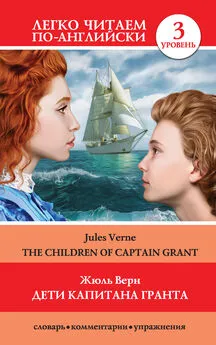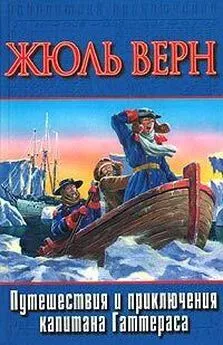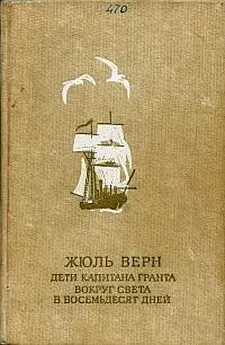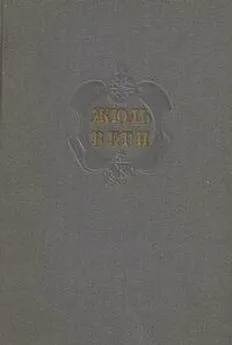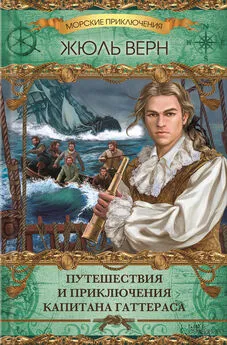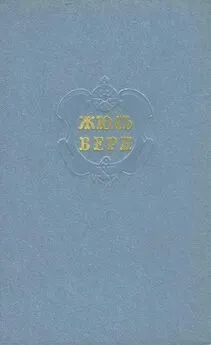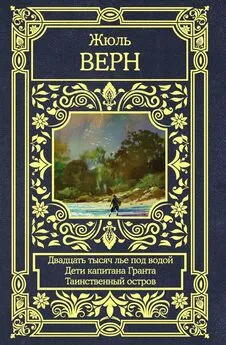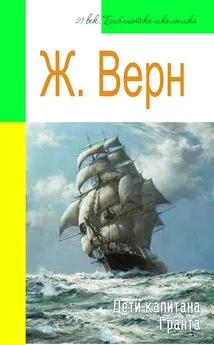Жюль Верн - Дети капитана Гранта / The Children of Captain Grant
- Название:Дети капитана Гранта / The Children of Captain Grant
- Автор:
- Жанр:
- Издательство:неизвестно
- Год:2019
- Город:Москва
- ISBN:978-5-17-115791-3
- Рейтинг:
- Избранное:Добавить в избранное
-
Отзывы:
-
Ваша оценка:
Жюль Верн - Дети капитана Гранта / The Children of Captain Grant краткое содержание
Дети капитана Гранта / The Children of Captain Grant - читать онлайн бесплатно ознакомительный отрывок
Интервал:
Закладка:
“But that is a valuable scrap of information,” said John Mangles. “The shipwreck occurred in the southern hemisphere.”
“That’s a wide world,” said the Major.
“Well, we’ll go on,” resumed Glenarvan. “Here is the word ABOR; that is clearly the root of the verb ABORDER. The poor men have landed somewhere; but where? CONTIN—does that mean continent? CRUEL!”
“CRUEL!” interrupted John Mangles. “I see now what GRAUS is part of in the second document. It is GRAUSAM, the word in German for CRUEL!”
“Let’s go on,” said Lord Glenarvan, becoming quite excited over his task, as the incomplete words began to fill up and develop their meaning. “INDI—is it India where they have been shipwrecked? And what can this word ONGIT be part of? Ah! I see—it is LONGITUDE; and here is the latitude, 37 degrees 11”. That is the precise indication at last, then!”
“But we haven’t the longitude,” objected McNabbs.
“But we can’t get everything, my dear Major; and it is something at all events, to have the exact latitude. The French document is decidedly the most complete of the three; but it is plain enough that each is the literal translation of the other, for they all contain exactly the same number of lines. What we have to do now is to put together all the words we have found, and translate them into one language, and try to ascertain their most probable and logical sense.”
“Well, what language shall we choose?” asked the Major.
“I think we had better keep to the French, since that was the most complete document of the three.”
“Your Lordship is right,” said John Mangles.
“Very well, then, I’ll set to work.”
In a few minutes he had written as follows:

“Now, friends,” said Lord Glenarvan, “let us go on with our investigations, for the lives of several human beings depend on our sagacity. We must give our whole minds to the solution of this enigma. We know that on the 7th of June a three-mast vessel, the Britannia of Glasgow, foundered; that two sailors and the captain threw this document into the sea in 37 degrees 11” latitude, and they need help.”
“Exactly so,” said the Major.
“So,” continued Glenarvan. “The shipwreck occurred in the southern seas; and here I would draw your attention at once to the incomplete word GONIE. Is this the name of the country?”
“ Patagonia [20] Patagonia – Патагония
!” exclaimed Lady Helena.
“Undoubtedly.”
“But is Patagonia crossed by the 37th parallel?” asked the Major.
“Yes, it is,” said the captain, opening a map of South America. “Patagonia just touches the 37th parallel. It cuts through Araucania [21] Araucania – Араукания
, goes along over the Pampas [22] the Pampas – пампасы
to the north, and loses itself in the Atlantic.”
“Well, the two sailors and the captain LAND—land where? CONTIN—on a continent; on a continent, not an island. What becomes of them? There are two letters here providentially which give a clew to their fate—PR, that must mean prisoners, and CRUEL INDIAN is evidently the meaning of the next two words. These unfortunate men are captives in the hands of cruel Indians. Don’t you see it? Isn’t the document quite clear now? Isn’t the sense self-evident?”
Glenarvan spoke in a tone of absolute conviction, and the others all exclaimed, too, “Yes, it is evident, quite evident!”
After an instant, Lord Edward said again, “I have no doubt whatever the event occurred on the coast of Patagonia, but still I will know, in Glasgow, the destination of the Britannia .”
“Oh,” said John Mangles. “I have the Gazette here, and we’ll see the name on the list, and all about it.”
“Do look at once, then,” said Lord Glenarvan.
The papers for the year 1862 was soon brought, and John began to turn over the leaves rapidly. In a few minutes he called out: “I’ve got it! ‘May 30, 1862, Peru-Callao [23] Peru-Callao – Перу-Кальяо
, with cargo for Glasgow, the Britannia , Captain Grant [24] Captain Grant – капитан Грант
.’”
“Grant!” exclaimed Lord Glenarvan. “That is the adventurous Scotchman that attempted to found a new Scotland on the shores of the Pacific.”
“Yes,” rejoined John Mangles, “it is the very man. He sailed from Glasgow on the Britannia in 1861, and has not been heard of since.”
“There isn’t a doubt of it, not a shadow of doubt,” repeated Lord Glenarvan. “It is just that same Captain Grant. The Britannia left Callao on the 30th of May, and on the 7th of June, a week afterward, it is lost on the coast of Patagonia. You see, friends, we know all now except one thing, and that is the longitude.”
“That is not needed now, we know the country. With the latitude alone, I would engage to go right to the place where the wreck happened.”
And he took up the pen, and dashed off the following lines immediately:
“On the 7th of June, 1862, the three-mast vessel, Britannia , of Glasgow, has sunk on the coast of Patagonia, in the southern hemisphere. Making for the shore, two sailors and Captain Grant are about to land on the continent, where they will be taken prisoners by cruel Indians. They have thrown this document into the sea, in longitude and latitude 37 degrees 11”. Bring them assistance, or they are lost.”
Lord Glenarvan flashed along the electric wire to London to the Times the following words: “For information respecting the fate of the three-mast vessel Britannia , of Glasgow, Captain Grant, apply to Lord Glenarvan, Malcolm Castle [25] Malcolm Castle – Малкольм-Касл
, Dumbartonshire, Scotland.”
Chapter III. The Captain’s Children
Lord Edward Glenarvan’s fortune was enormous, and he spent it entirely in doing good. His kindheartedness was even greater than his generosity.
He was thirty-two years of age, tall, and had stern features; but there was an exceeding sweetness in his look. He was known to be brave. He had scarcely been married three months, and his bride was the daughter of great traveler. Miss Helena did not belong to a noble family, but she was Scotch, and that was better than all nobility in the eyes of Lord Glenarvan; and she was, moreover, a charming, religious young woman.
Lord Glenarvan did not forget that his wife was the daughter of a great traveler, and he had the Duncan built expressly that he might take his bride to the most beautiful lands in the world, and complete their honeymoon by sailing up the Mediterranean.
However, Lord Glenarvan had gone now to London. Lady Helena was too much concerned herself about the lives of the shipwrecked men.
In the evening, when Lady Helena was sitting alone in her room, the house steward [26] house steward – управляющий
came in and asked if she would see a young girl and boy that wanted to speak to Lord Glenarvan.
“Some of the country people?” asked Lady Helena.
“No, madame,” replied the steward, “I do not know them at all.”
“Tell them to come up.”
In a few minutes a girl and boy were shown in. They were evidently brother and sister. The girl was about sixteen years of age; her tired pretty face, and sorrowful eyes, as well as her neat though poor attire, made a favorable impression. The boy she held by the hand was about twelve, but his face expressed such determination, that he appeared quite his sister’s protector.
Lady Helena said, with an encouraging smile:
“You wish to speak to me, I think?”
“No,” replied the boy, in a decided tone; “not to you, but to Lord Glenarvan.”
“Excuse him, ma’am,” said the girl, with a look at her brother.
“Lord Glenarvan is not at the castle just now,” returned Lady Helena; “but I am his wife, and if I can do anything for you—”
“You are Lady Glenarvan?” interrupted the girl.
“I am.”
“The wife of Lord Glenarvan, that put an announcement in the TIMES about the shipwreck of the Britannia ?”
“Yes, yes,” said Lady Helena, eagerly; “and you?”
“I am Miss Grant, ma’am, and this is my brother.”
“Miss Grant, Miss Grant!” exclaimed Lady Helena, drawing the young girl toward her, and taking both her hands and kissing the boy’s rosy cheeks.
“What is it you know, ma’am, about the shipwreck? Tell me, is my father living? Shall we ever see him again? Oh, tell me,” said the girl.
“My dear child,” replied Lady Helena. “I cannot answer you lightly such a question; I would not delude you with vain hopes.”
“Oh, tell me all, tell me all, ma’am. I can bear to hear anything.”
“My poor child, there is but a faint hope; it is just possible you may one day see your father once more.”
The girl burst into tears, and Robert seized Lady Glenarvan’s hand and covered it with kisses.
As soon as they grew calmer they asked some questions, and Lady Helena recounted the whole story of the document, telling them that their father had been wrecked on the coast of Patagonia, and that he and two sailors, the sole survivors, had written an appeal for help in three languages.
During the recital, Robert Grant more than once cried out, “Oh, papa! My poor papa!” and pressed close to his sister.
Miss Grant sat silent and motionless, with clasped hands, and all she said when the narration ended, was: “Oh, ma’am, the paper, please!”
“I don’t have it now, my dear child,” replied Lady Helena.
“You don’t have it?”
“No. Lord Glenarvan took it to London, for the sake of your father; but I have told you all it contained, word for word. But except the longitude, unfortunately.”
“We can do without that,” said the boy.
“Yes, Mr. Robert,” rejoined Lady Helena, smiling at the child’s decided tone. “And so you see, Miss Grant, you know the smallest details now just as well as I do. Well, tomorrow, perhaps, Lord Glenarvan will be back. My husband wanted to lay the document before the Lords of the Admiralty, to induce them to send out a ship immediately in search of Captain Grant.”
“Is it possible, ma’am,” exclaimed the girl, “that you have done that for us?”
“Yes, my dear Miss Grant, and I am expecting Lord Glenarvan back every minute now.”
“Oh, ma’am! Heaven bless you and Lord Glenarvan,” said the young girl.
“My dear girl, we deserve no thanks; anyone in our place would have done the same. Till my husband returns, you will remain at the Castle.”
“Oh, no, ma’am. We are just strangers.”
“Strangers, dear child!” interrupted Lady Helena; “you and your brother are not strangers in this house!”
It was impossible to refuse an invitation given with such heart, and Miss Grant and her brother consented to stay till Lord Glenarvan returned.
Chapter IV. Lady Glenarvan’s Proposal
Lady Helena began to interrogate Miss Grant, asking her about her past life and her present circumstances. It was a touching, simple story she heard in reply, and one which increased her sympathy for the young girl.
Mary and Robert were the captain’s only children. Harry Grant was a fearless sailor and lived in Dundee [27] Dundee – Денди
, in Perthshire [28] Perthshire – Пертшир
, Scotland. His father had given him a thorough education. He lost his wife when Robert was born, and during his long voyages he left his little ones in charge of his cousin, a good old lady. Now, the old cousin has died, and Harry Grant’s two children were left alone in the world.
Интервал:
Закладка:
